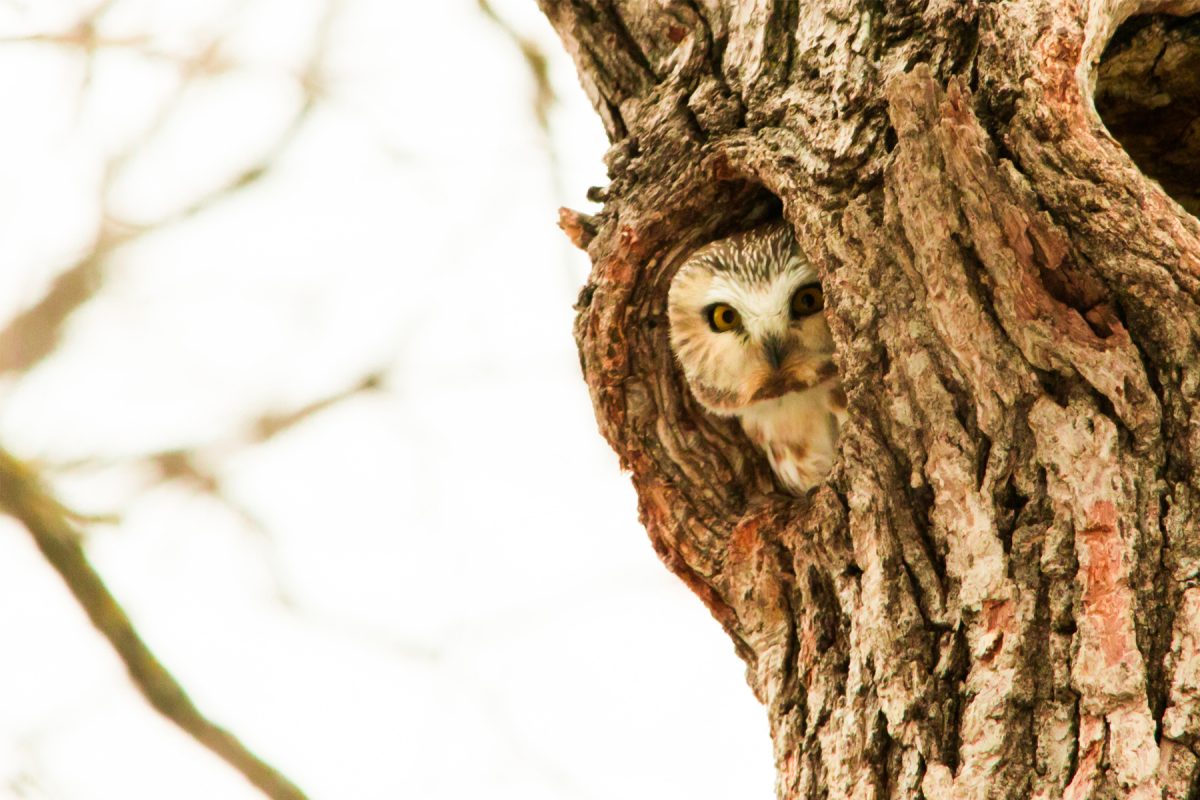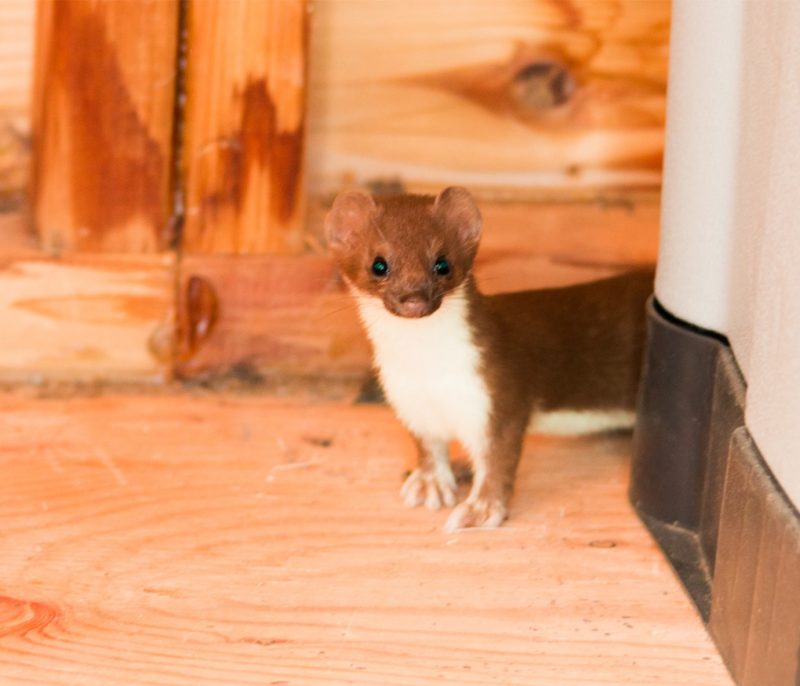
A species of interest hiding in Winnipeg: the Northern Saw-whet Owl // Photo: Juan Pablo Medina
Calling all wildlife researchers
UM organizing wildlife researchers to study impact of travel, social restrictions on wildlife populations
Nicola Koper, a professor in the University of Manitoba’s Natural Resources Institute, has launched a new initiative to coordinate biologists across the world who hope to understand the effects our COVID-19 social and travel restrictions are having on wildlife populations.
The C19-Wild Research Group brings together ecological teams to share knowledge, ideas and research progress.
“We’re still welcoming new teams to join us, so we can bring together resources and ideas and build teams that will help us understand impacts of travel restrictions on wildlife,” says Koper. (Researchers can contact her at nicola.koper@umanitoba.ca)
Travel restrictions might have positive or negative effects on wildlife. Fewer cars may decrease traffic mortality, and quieter streets may allow for animals, such as birds, to better communicate and find mates. However, decreased traffic may also lead to increased activity of introduced mammals such as rats and domestic cats, which could harm native wildlife.
Just as many city dwellers have begun to notice and comment on wildlife living around them, ecologists world-wide have become fascinated by the unintended consequences of travel restrictions and social lockdowns on wildlife. “All sorts of studies have been initiated to try to understand this”, says Koper. “We have a lot to learn from each other.”
The UM-led team, working with Environment and Climate Change Canada, Carleton University, University of Alberta, and Arizona State University, is examining the impact of travel restrictions on birds across North America, with a focus on urban landscapes. Other teams include one from the University of Washington that will examine impacts of reduced pollutants on bird populations; Florida Gulf Coast University will look at how decreased human activity impacts wildlife movements; and researchers at Memorial University are partnering with teams internationally to investigate changes to aquatic and terrestrial ecosystems.
Koper’s C19-Widlife Research Group is supported by Canada’s Natural Sciences and Engineering Research Council.
Research at the University of Manitoba is partially supported by funding from the Government of Canada Research Support Fund.







